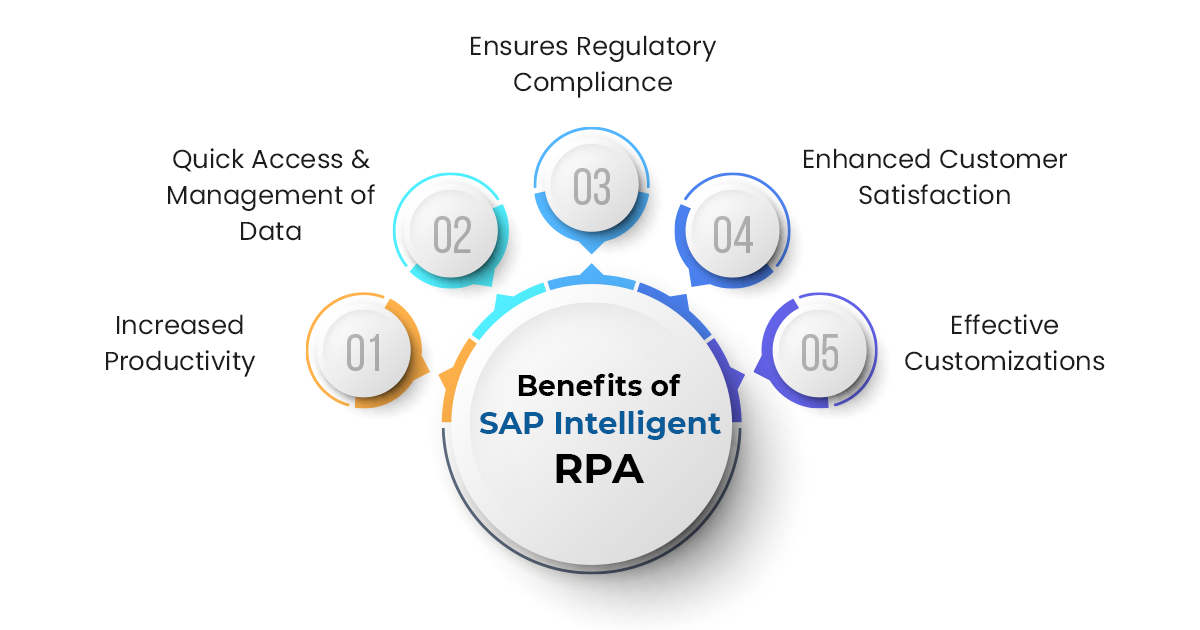The relevance of automating processes and evolved data analytics is gaining ground as businesses traverse through the dynamics of the ongoing pandemic. With AI and Machine learning applications, businesses can easily embrace, adapt and ease into a remote work environment. Process automation is being supported by cloud technology that can simplify business processes and remove undue pressure off IT and human resources.
According to CIO, the Robotic Process Automation (RPA) services market is likely to grow from $11.5 billion in 2021 to $16 billion in 2025. RPA not only helps reduce IT costs for enterprises but also accentuates digital transformation.
The impact of this global COVID-19 pandemic has furthered the role of AI and automation to increase business efficiency. The shift to remote work also has played a role in changing the landscape of cross-business functions – be it service, sales, marketing, or finance.
Businesses see the imminent need for evolved and adaptable business processes and advanced data analytics to be in place. Further, by allowing technology to take over repetitive tasks resources can be directed to work on strategies, industry innovation, and other directives to yield bigger returns on investments. Investing in the right process automation tool helps optimize as well as scale the business machine and help it race full steam ahead irrespective of economic conditions.
The objective of business process automation is to establish streamlined efficient workflows for smooth business functioning. In today’s mechanized business, SAP and its umbrella of offerings make a much-needed difference by automating simple and repetitive tasks and processes.

Why Use SAP Intelligent RPA for Automation?
SAP products are used for ERP (Enterprise Resource Planning) to streamline and systemize business processes and workflows. With SAP Intelligent RPA, enterprises can automate and streamline inventory management, finance, HR, etc. SAP automation helps businesses plan resources more efficiently and can handle any user requirement by leveraging the SAP toolset. This results in a simplified user experience as well as a reduction in human error involved in delegated business processes.
With the right automation tool and a strategic approach, the following results can be achieved with SAP automation.

- Increased productivity by eliminating repetitive, tedious, error-prone tasks enabling resources to focus and spend more time on higher-value tasks.
- With automation businesses can save time and resources, meaning costs are automatically reduced.
- Stakeholders can quickly fast access their data for reporting or analytics as automation techniques can rapidly retrieve this information across ERP modules and clouds.
- Enterprises can scale tasks using SAP automation tools like Robotic Process Automation (RPA) as they allow businesses to handle a large amount of data quickly.
- Automating SAP business processes ensures adherence to data governance and regulatory compliance standards.
- SAP automation ensures that the end-users dedicate more time and energy to performing their jobs thereby enhancing their productivity.
- The efficiency and speed at which SAP processes are completed especially with customer-facing applications produce swift results. This boosts the satisfaction, happiness, and overall experience of users.
- Organizations can divert focus from manually implementing workflows to determining how to make them more effective through customizations and optimization.
When deciding to automate an SAP system, businesses must carefully scrutinize their RPA vendor. The technology partner must provide users with an intuitive visual interface, easy setup, and help automate any business transaction. Gemini Consulting & Services can deploy an RPA platform that is secure and meets the specific requirements of an enterprise. Contact us to know how RPA can improve business efficiency and reduce the cost of operations.
What Can be Automated Using SAP Intelligent RPA?
Some data-related tasks are complex and require human intelligence, creativity, and critical thinking, and others are prone to error during manual entry by at least one user. If there’s at least one such user in the business, there may be more of them and hence what SAP can accomplish is simply a testament to its cross-organizational value. SAP solutions are very powerful as they combine data from all major enterprise functions, in almost every vertical and can easily be deployed in mundane tasks such as:
- Filling and scanning various kinds of forms
- Data entry and making copies
- Legacy application integration
- Content migration
Many testing processes can also be automated, particularly regression testing (one that is usually performed after a code change in the application), as it is repetitive and time-consuming, but plays a critical role in software quality assurance. Further SAP Intelligent RPA can be deployed in functions such as:
Customer Service
SAP automation helps this industry by empowering customer service representatives with updated customer data while interacting with the customer. Customer files on previous purchases, problems, and even resolutions can be easily accessed to provide a better customer experience.
Sales & Marketing
SAP automation allows the sales and marketing teams to quickly access data while compiling additional data (like payment /outstanding) for customer information; this may also include pending orders etc.
Manufacturing
An SAP automation platform plays a critical role in manufacturing businesses, especially in warehouse management and procurement. It can easily track stock movement, initiate stock transfers, monitor warehouse stocks for materials, and update data accordingly. SAP automation can also help with requisitions, PO management, and vendor records management.
Healthcare & Pharmaceuticals
Healthcare personnel collects numerous forms and data about patients, providers, diagnoses, and treatments that need to be processed for further course of treatment, etc. SAP automation enables resources to compile this data swiftly and accurately with mainly structured data.
Human Resources
SAP automation accelerates processes such as talent sourcing, onboarding, and offboarding employees. It also helps automate other processes such as benefits and compensation packages, as well as tracking and managing employee performance.
Finance & Accounting
With SAP automation can automate various invoice processing steps like receiving and registering invoices. This approach is invaluable for classifying data types, extracting information, and transferring it to systems down the line for issuing payments, etc.



